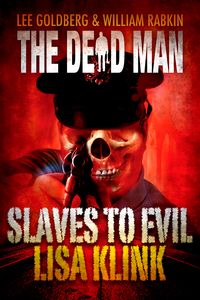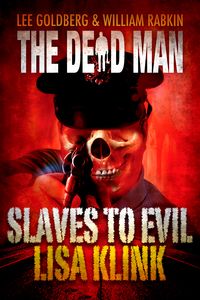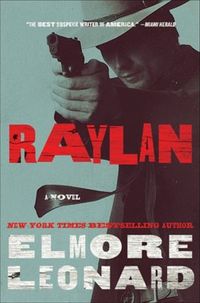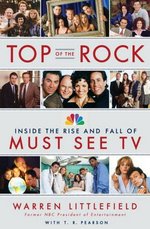WRITE A “DEAD MEAN” NOVEL CONTEST
Please read these Official Rules before entering the Write a “Dead Man” Novel Contest (“Contest”). By submitting an entry, entrants (“you” or “your”) acknowledge that you are eligible to enter the Contest and have read and agree to be bound by these Official Rules and our and the judges decisions related to the Contest. We will select one winner who will receive a full, work-for-hire publishing contract to write a 25,000 word novel in “The Dead Man” series of books, commissioned by Adventures in Television Inc. (the “Sponsors”) and published by Amazon Publishing.
1. ELIGIBILITY. You are eligible to enter the Contest if you are at least 18 years old at time of entry and a legal resident of one of the following countries: Argentina, Australia, Austria, Belgium, Canada (excluding the Province of Québec), China, Denmark, Finland, Germany, India, Ireland, Japan, Luxembourg, Malaysia, the Netherlands, New Zealand, Norway, Romania, South Africa, South Korea, Sweden, Switzerland, the United States (the 50 states and D.C.), or the United Kingdom. You are not eligible to enter the Contest if you are (a) an Amazon employee or independent contractor or an employee or independent contractor of any of Amazon’s affiliates; (b) a family member (spouses, domestic partners, parents, grandparents, siblings, children, and grandchildren) of an Amazon employee or independent contractor; (c) a family member (spouses, domestic partners, parents, grandparents, siblings, children, and grandchildren) of an employee or independent contractor of any of Amazon’s affiliates; (d) an individual living in the same household as Amazon’s employee or independent contractor; (e) an individual living in the same household as an employee or independent contractor of any of Amazon’s affiliates; or (f) a judge involved in the Contest.
2. HOW TO ENTER. We must receive your Contest entry between June 1, 2012 at 12:01 a.m. (U.S. Pacific Standard Time) and August 1, 2012 at 11:59 p.m. (U.S. Pacific Standard Time). We will stop accepting Entries after we have received 500 submissions. You must download the entry form and the Release & Non-Disclosure Form from http://thedeadmanbooks.blogspot.com. You must then follow the instructions on the entry form and email to us, at thedeadmanbookcontest@gmail.com, the following attachments (1) a sample chapter of your proposed book in the “The Dead Man” series (“Chapter”) of up to 4,000 words, (2) an outline of your proposed book of up to 1000 words (“Outline”); (3) a signed release and non-disclosure form and (4) the personal information required on the entry form. (1-4 collectively, an “Entry”). We will not accept or review any Entry that does not comply with these Official Rules. 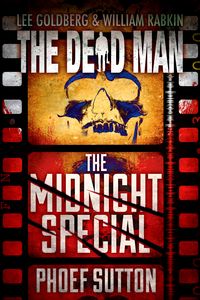
3. ENTRY REQUIREMENTS. You must be the only author of your Chapter and Outline. Any Chapter and Outline submitted as an Entry written by two or more authors will not be eligible. Your Chapter and Outline must: (a) be your original creation; (b) be fictional; (c) be in the English language; (d) be of interior black and white text without images; (e) not currently or previously have been the subject of a publishing agreement with any publisher. Additionally, you must submit your Chapter and Outline digitally in Microsoft Word .doc, .docx, .rtf, or .txt format. Any entry that we determine, in our sole discretion, to meet these requirements will be considered a “Valid Entry.” You may be represented by an agent on the condition that you – not your agent – agree to comply with these Official Rules. Our servers and clock will be the official clock for all phases of the Contest. You will not receive any notice that your entry has been received. You will only be contacted if you are the Winner. You may only submit one entry.
4. CONDITIONS OF ENTRY. By submitting an Entry, you represent and warrant that your Entry: (a) is your original creation; (b) has not been copied in whole or in part from any other work; (c) has not previously been published as described in Section 3(e) above; (d) does not violate or infringe any copyright, trademark, privacy or publicity right, or other proprietary or intellectual property right of any person or entity; (e) is not defamatory, libelous, obscene, or otherwise illegal; and (f) is your sole and exclusive property. You further represent and warrant that you have complete, worldwide distribution rights in and to your Chapter and Outline.
5. GRANT OF RIGHTS. By submitting an Entry and if you are selected as the winner, you grant Adventures in Television the exclusive first publication rights to your Entry. By submitting an Entry, you grant us and our respective affiliates and agents permission to use, without charge, portions of your Chapter and Outline, along with your name and stated reason for writing the submitted Entry (if provided) for any purpose in connection with this Contest. You also grant us the right to edit the formatting and display of your Entry, and to create literary or any other types of effects in respect to your Entry without compensation or approval. In addition, to the extent that any moral rights (for example, the right to attribution and the right to integrity) apply, you waive (and to the extent that these rights may not be waived, agree irrevocably not to assert) your moral rights in your Entry for purposes of this Contest, including, without limitation, our use of excerpts from your Entry in connection with this Contest. You represent that you have received the consent of any person (or parent or legal guardian if such person is a minor) whose real and actual name or likeness is used or featured in any Entry that you submit. If you fail to obtain the consent, your Entry will be disqualified. We have the right at any time during the Contest to request proof of consent, and to disqualify your Entry if you cannot provide the requested documents. Excerpts, along with the your name, city, and state of residence, and portions of your Entry which relate to the submitted Chapter, may be posted on any website owned or operated by us or any of their affiliates (“Our Site”), any other website or other online point of presence on any platform through which any products or services available on or through Our Site are described, syndicated, offered, merchandised, or advertised. Our decision to post an Excerpt or any portion of an Entry on any one of Our Sites does not mean that the selected Entry has been selected as a winning Entry. Furthermore, you acknowledge that your Entry is based on copyrighted characters, concepts, and other creative elements belonging wholly to Adventures in Television Inc. and that “The Dead Man” logo is a registered trademark of Adventures in Television Inc. and that you may not publish, or otherwise publicly disseminate or repurpose your Entry in any media or format, regardless of whether or not you win the contest, without the written consent of Adventures in Television Inc.
6. COLLECTION/USE OF PERSONAL INFORMATION. We are collecting personal information primarily to process Entries, to contact you if necessary, or for marketing and other purposes. By participating in this Contest, non-U.S. resident entrants are authorizing the transfer of personal data to the United States for these purposes. By entering the Contest, you agree that we may share your information, in our sole discretion, with third parties that have a need to know the information, such as the judging panel or third parties that we retain to assist in administering the Contest; however, those third parties may only use the information for purposes related to this Contest.
 7. GRAND PRIZE. If you are selected as the Winner in a category, you will receive a $500 Amazon gift card and a standard work-for-hire publishing contract with Adventures in Television Inc. to write a novella, of no more than 25,000 words, in “The Dead Man” series and to market and distribute your final manuscript as a published book. Upon the full execution of the publishing contract, Adventures in Television will pay the Winner $500.00 USD (in addition to the $500 Amazon gift card). The $500.00 payment is an advance against the royalties to be earned by the Winner under the work-for-hire publishing contract. The approximate retail value (“ARV”) of the publishing contract is $500.00 USD for the advance. You will receive half of the advance on signing the contract, half on delivery of the final manuscript. Adventures in Television will determine the royalty rates to be paid under the work-for-hire publishing contract, which will depend on the format in which the book is published and the projected print run. You may not negotiate the standard work-for-hire publishing contract with Adventures in Television, and you must sign it “as is” upon receipt of the executable contract if you wish to enter into the publishing contract being awarded. The work-for-hire publishing contract will be governed by the laws of the State of California.
7. GRAND PRIZE. If you are selected as the Winner in a category, you will receive a $500 Amazon gift card and a standard work-for-hire publishing contract with Adventures in Television Inc. to write a novella, of no more than 25,000 words, in “The Dead Man” series and to market and distribute your final manuscript as a published book. Upon the full execution of the publishing contract, Adventures in Television will pay the Winner $500.00 USD (in addition to the $500 Amazon gift card). The $500.00 payment is an advance against the royalties to be earned by the Winner under the work-for-hire publishing contract. The approximate retail value (“ARV”) of the publishing contract is $500.00 USD for the advance. You will receive half of the advance on signing the contract, half on delivery of the final manuscript. Adventures in Television will determine the royalty rates to be paid under the work-for-hire publishing contract, which will depend on the format in which the book is published and the projected print run. You may not negotiate the standard work-for-hire publishing contract with Adventures in Television, and you must sign it “as is” upon receipt of the executable contract if you wish to enter into the publishing contract being awarded. The work-for-hire publishing contract will be governed by the laws of the State of California.
8. DISQUALIFICATIONS. If your Entry is disqualified for any reason, you will not receive a notice or explanation describing the reason for the disqualification.
9. WINNER NOTIFICATION AND REQUIREMENTS. If you are selected as a potential Finalist, we will notify you by phone or e-mail starting on or before Sept 1, 2012. You will be required to sign and return a work-for-hire publishing contract with Adventures in Television, which Adventures in Television will countersign only if you are selected as the Winner. We must receive the signed publishing contract by Oct. 1, 2012. If any documentation is not returned by the specified dates, we may invite an alternate Finalist, chosen by the Adventures in Television judging panel to replace the original Finalist. If notification to the alternate Finalist is returned as undeliverable, we will invite the next eligible alternate Finalist, and so on. Prior to awarding a prize, we may require you to sign additional documents we believe are necessary to confirm your eligibility, to obtain a liability and publicity release, and to award any prize.
10. ADDITIONAL TERMS. The Contest and all accompanying materials are © 2012 by Adventures in Television, Inc. All rights reserved. The Contest is void outside the eligible entry jurisdictions and where prohibited by law. You agree that our decisions related to the Contest are final and binding in all matters. We reserve the right, to the maximum extent permitted by law, in our sole discretion, to change these rules or cancel the Contest at any time. We may also modify, terminate or suspend the Contest if any viruses, worms, bugs, unauthorized human intervention, or other causes beyond our control corrupt or impair the administration, security, or fairness of the Contest or submission of Entries. If you use the name or likeness of an individual in your Entry, you agree to be solely responsible for that use. Amazon is not a sponsor of or involved in the judging of this Contest. You agree that we, Amazon and our and their respective parents, affiliates, subsidiaries and advertising and promotion agencies, along with any officers, directors, agents, employees and representatives of any of them (collectively, “Released Parties”), will not be responsible for any action brought by a person whose consent you did not obtain. The Released Parties are not responsible for: (a) any human or other error that may occur in the processing of the Entries; (b) any error, omission, interruption, deletion, defect, delay in operation or transmission, theft or destruction, or unauthorized access to or alteration of Entries; (c) or for technical, network, telephone, computer, hardware or software, malfunctions of any kind, which may occur in connection with this Contest, including, without limitation, any errors or problems related to the administration of the Contest, the processing or judging of Entries, the announcement of the prizes, or the Contest-related materials. Released Parties are also not responsible for: (y) inaccurate transmission of, or failure to receive, any entry information on account of technical problems or traffic congestion on the Internet or at any Web site; and (z) injury or damage to you or any other computer resulting from downloading any materials in connection with the Contest. We reserve the right, in our sole discretion, to disqualify any individual found to be tampering with the entry or voting process, the outcome of the Contest, or the operation of the Contest or Web site; to be acting in violation of these Official Rules; or to be acting in an unsportsmanlike or disruptive manner or with intent to annoy, abuse, threaten, or harass any other person (including actions by you INDIVIDUAL TO DELIBERATELY DAMAGE ANY WEBSITE OR UNDERMINE THE LEGITIMATE OPERATION OF THE CONTEST MAY BE A VIOLATION OF CRIMINAL AND CIVIL LAWS, AND IF SUCH AN ATTEMPT IS MADE, WE RESERVE THE RIGHT TO SEEK DAMAGES OR OTHER RELIEF (INCLUDING ATTORNEYS’ FEES) FROM THE PERSON TO THE FULLEST EXTENT PERMITTED BY LAW.
11. LIMITATIONS OF LIABILITY. THE RELEASED PARTIES ARE NOT RESPONSIBLE FOR THE UNAUTHORIZED USE OF ANY ENTRY (OR ANY PORTION OF ANY ENTRY) BY ANY THIRD PARTY. YOU AGREE (FOR YOURSELF AND YOUR HEIRS) THAT THE RELEASED PARTIES, TO THE MAXIMUM EXTENT PERMITTED BY LAW, ARE NOT RESPONSIBLE FOR ANY LIABILITY, LOSS, INJURY, OR DAMAGE TO PROPERTY OR TO PERSON. YOU ALSO AGREE THAT WE ARE NOT RESPONSIBLE FOR ANY REASONABLE ATTORNEY’S FEES AND COURT COSTS DIRECTLY OR INDIRECTLY RELATED TO YOUR PARTICIPATION IN THE CONTEST, OR BY REASON OF YOUR ACCEPTANCE, POSSESSION, USE OR MISUSE OF THE PRIZES (INCLUDING ANY TRAVEL OR ACTIVITY RELATED TO A PRIZE). NOTHING IN THESE OFFICIAL RULES WILL LIMIT ANY RELEASED PARTY’S LIABILITY FOR DEATH OR PERSONAL INJURY CAUSED BY THAT PARTY'S NEGLIGENCE, A BREACH OF THESE OFFICIAL RULES, OR FRAUDULENT MISREPRESENTATION. 
12. GOVERNING LAW/DISPUTES. This Contest is governed by the laws of the United States and the State of California. As a condition of participating in this Contest, you agree, to the extent permitted by law, that any and all disputes which cannot be resolved between the parties, and causes of action arising out of or in connection with this Contest, will be resolved individually, without resort to any form of class action, exclusively before a court located in Los Angeles County, California. FURTHER, IN ANY DISPUTE, UNDER NO CIRCUMSTANCES WILL YOU BE PERMITTED TO OBTAIN AWARDS FOR, AND YOU HEREBY WAIVE ALL RIGHTS TO CLAIM, PUNITIVE, INCIDENTAL OR CONSEQUENTIAL DAMAGES, INCLUDING ATTORNEYS' FEES, OTHER THAN ENTRANT’S ACTUAL OUT-OF-POCKET EXPENSES (E.G. COSTS ASSOCIATED WITH ENTERING). YOU FURTHER WAIVE ALL RIGHTS TO HAVE DAMAGES MULTIPLIED OR INCREASED.
13. RIGHTS OF PUBLICITY. By participating in the Contest, you consent to the worldwide use of your name, biographical information, photographs, videos or likenesses in any manner and in any medium now in existence or later invented for any purpose in connection with the Contest without additional compensation, notification or permission, except where prohibited by law.
14. SPONSORS’ ADDRESS. Adventures in Television, Inc, P.O. Box 8212, Calabasas, CA 91372
